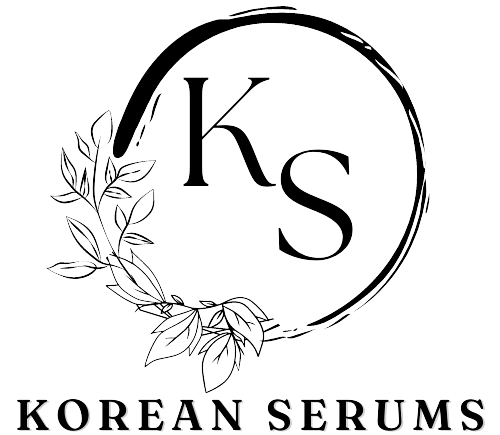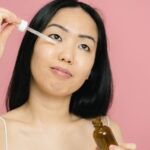Although the question “does makeup age your skin?” is valid, the more pertinent one is “can makeup age your skin?” The latter question has a yes response, but not always.
Many people have heard about aging gracefully, but in addition to UV rays and chemicals, your lifestyle and some things you use can have a significant impact on your complexion. Even if some people apply makeup in the hopes that it will make them look youthful, it’s crucial to think about the ingredients. Many people frequently ponder whether wearing foundation speeds up the aging process of their skin. While the question is legitimate, it can be better answered if you are aware of the ingredients in your foundation and other cosmetics.
Premature Aging From Makeup
Avoiding UV radiation damage to your skin is essential for maintaining its health. When you use cosmetics after forgoing sunscreen, you put the skin at danger of UV damage. The onset of fine lines, wrinkles, and age spots can be accelerated by prolonged cosmetics use and UV exposure. Additionally, does makeup age your skin?. Yes,Makeup can enter your pores, harm your elastin, and cause wrinkles if you don’t remove it before bed.
How Does Makeup Age Your Skin?
Breakouts
Breakouts can be brought on by a hormonal imbalance, specific medications, an improper diet, etc. However, using cosmetics frequently can exacerbate the situation and result in more frequent outbreaks. Dermatologists advise those with acne-prone skin to wear less makeup. Using less makeup can also improve the health of your skin and reduce blackheads.
Wrong Application
First and foremost, employing cosmetics that are effective for one’s sensitive skin will bring out its greatest features. A daily skin care regimen will act as a strong base for a polished, smooth canvas. Always add a broad-spectrum sunscreen as the final step to your morning routine. The ideal composition makes a fantastic primer for applying makeup. When applying makeup, use a soft touch and avoid pushing or straining too much. Refrain from rubbing the foundation into the skin. This can harm collagen and rupture capillaries, which results in a loss of suppleness and an increase of fine lines and wrinkles, especially all around the thin, sensitive eye area.
Allergic Response
Although they may look alike, the ingredients in beauty products differ from brand to brand. Your skin is not harmed by products manufactured with gentle ingredients. However, cosmetics containing risky substances like paraben and SLES may cause allergies. If you have allergies to specific ingredients, these products may make them worse. As a result, your skin could become uncomfortable and irritating.
Oiliness or Dryness
Makeup can either make your skin even more dry or even more greasy, based on your skin type. This is due to the fact that improper makeup removal techniques or improper foundation application can deplete your skin’s naturally occurring oils, hinder the removal of dead skin cells, and impede cell turnover.
No Removal Before Bed
Does makeup age your skin? Is it crucial to remove the makeup? Wrinkles can develop if you don’t take off your makeup before night. Applying makeup without first doing your skincare routine might result in sun damage and hence, premature aging. The SPF in makeup products is insufficient to adequately safeguard your skin from the sun’s harmful rays and the ageing effects they can have.
Before going to bed, always completely remove your makeup. Skin undergoes a thorough assessment of DNA synthesis and skin regeneration as we sleep. Makeup has a tendency to create an occlusive barrier when left just on skin, preventing the regeneration of new skin cells. The effects of sleeping in makeup include blocked pores, pimples, discomfort, and early aging.
Some Ingredients
Due to rising customer desire for openness, there has been an increase in organic cosmetics and product labelling clarity in recent years. Outdated formulas are being replaced with safer, non-toxic alternatives that use better, cleaner chemicals. In considering the way, it is crucial to perform due diligence by understanding how to read labels and identify frequent skin irritants. By eliminating the skin’s natural oils, these irritants may excessively dry out the skin, resulting in crow’s feet and wrinkles. Common irritants in cosmetic products include the following ingredients:
- Fragrance
- Parabens
- phenoxyethanol
- Bismuth Oxychloride
- Silicones (dimethicone or cyclomethicone)
Color Shifts
Although there are risks to wearing makeup every day, resting with it on all evening can gravely hurt your skin. Radicals, which are created by sunshine and pollution, can harm collagen, causing your skin to deteriorate and altering the color of the skin. For instance, because long-lasting lipsticks contain chemicals that block oxygen from entering your lips, when they are used for longer than ten hours, the colour of your lips deepens.
Skin Irritation
Some makeup chemicals should never be applied to the skin, whether you have delicate skin or not. When purchasing new makeup items, exercise caution. In particular when it comes to delicate facial features like the eyes and lips. Certain cosmetics might irritate or cause redness in your skin, damaging it. Before using a new product on your face, test a small quantity on the inside of your wrist to see how it affects your skin. To prevent irritation, you should always verify the components before making a purchase and the expiry dates of items you do own. To protect your skin, keep an eye on both the chemicals and the equipment you use for beauty.
Does makeup concern your skin aging?
Deep Down every woman all over the world is obsessed with makeup and its way of polishing their beauty more. Makeup is something that gives immense confidence and satisfaction that only women can understand. But are we aware of the effects that makeup put on our faces? Do we ever try to find out what consequences will have to face after using too much makeup?
Makeup must have some bad effects on our skin which cannot be ignored in one way or the other.
Generally speaking, using cosmetics doesn’t seem to have any noticeable effects on the natural aging process.
Simply said, using makeup doesn’t prevent your body from making collagen, elastin, or any other naturally occurring compounds required for maintaining and repairing your skin.
Some components in specific types of cosmetics may speed up extrinsic aging by either directly harming your skin or subjecting it to external attackers.
For example, studies have shown that the preservative methylparaben, which is occasionally included in cosmetics, moisturizers, and hair care products, may be damaging the human skin when it is exposed to sunlight.
Some fragrance components included in cosmetics and skin care items have also been connected to skin irritation, eczema, and other skin conditions in a study.
Final Thoughts
Beyond these pointers, sunscreen and high-quality cosmetics are essential. Natural ingredients are used in mineral cosmetics, such as Colorescience products, making them safer and kinder to the skin. Additionally, mineral makeup has been shown to improve acne and lessen skin issues.A lot of the makeup products you use frequently have terrible chemicals in them that can prevent your skin’s barrier from performing its protective functions, which makes it easier for viruses to infiltrate your body.
Does makeup age your skin? Regular makeup use can have a number of negative consequences on your skin’s health and could result in early aging.
SPF is frequently used in cosmetics since it can aid to further preserve the sensitive skin on the face. Sunscreen, in addition to SPF in cosmetics, is crucial for preserving skin health, including keeping it as youthful-looking as possible, while lowering the cancer risk.







